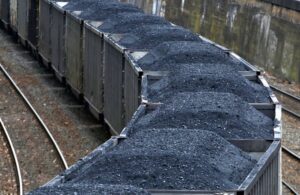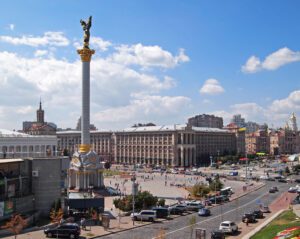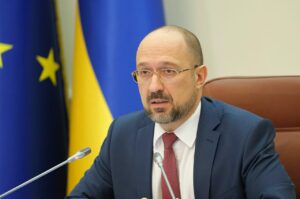
KSG Agro agricultural holding in January-September 2021 increased its net profit 3.6 times compared to January-September 2020, to $17.28 million, EBITDA increased by 10%, to $7.35 million.According to a report of the holding on the website of the Warsaw Stock Exchange on Monday, its revenue for the specified period increased by 43%, to $20.94 million.KSG Agro for the reporting period increased its gross profit by 8%, to $ 7.3 million, and operating profit – by 11%, to $6.15 million.In addition, the group of companies received $1.2 million in net profit due to the difference in exchange rates, while in January-September 2020 this factor generated $1.9 million in net loss.“As of December 31, 2020, the total amount of bank loans in foreign currency was $12.2 million. To mitigate foreign exchange risks, the management organized a change in foreign currency loans from TAScombank by switching from a fixed interest rate to a variable rate,” the group said in a statement.According to the report, the working capital of the agricultural producer as of September 30 this year increased by 6 times compared to September 30, 2020, from $1.1 million to $6 million.Over nine months of this year, the agricultural holding reduced profit in the crop segment by 21% compared to January-September 2021, to $5.37 million, while in the livestock segment it increased 2.5 times, to $1.47 million. In the segment “other operations” (production of fuel pellets and thermal energy), KSG Agro received $460,000 in net profit versus $430,000 in net loss over the same period in 2020.As of November 5, 2021, the agricultural holding harvested 30,550 tonnes of wheat; 19,550 tonnes of sunflower seeds; 8,561 tonnes of barley; 7,758 tonnes of corn and 760 tonnes of rapeseed.According to the report, the number of sows at KSG Agro in January-September 2021 increased by 8.7%, to 5,870. At the same time, the total number of animals (pigs and piglets) for the specified period decreased by 0.6%, to 41,130.“In 2021, the group of companies began a project to gradually renew the sow population in Ukraine in order to increase the birth rate of piglets. To this end, it works with the Canadian genetic company Genesus. In September 2021, the group has already received the first batch of sows from Genesus,” the agricultural holding said in the report.The group of companies over nine months of 2021 increased pork sales by a quarter compared to January-September 2020, in dollar terms, sales amounted to $3.13 million.The vertically integrated holding KSG Agro is engaged in pig breeding, as well as in production, storage, processing and sale of grain and oilseeds. Its land bank is about 21,000 hectares.According to the agricultural holding itself, it is one of the top five pork producers in Ukraine.

Ukraine in January-October 2021 increased imports of hard coal and anthracite (heading code 2701) by 14.8% (by 2.064 million tonnes) compared to the same period in 2020, to 16.03 million tonnes. According to the State Customs Service, coal was imported for $1.741 billion, which is 21.6% more than in January-October 2020 ($1.432 billion).Coal was received from the Russian Federation for $1.141 billion (share in imports 65.54%), the United States for $322.306 million (18.51%), Kazakhstan for $195.42 million (11.22%), and other countries for $82.329 million (4.73%). Coal exports by Ukraine in January-October 2021 amounted to 4,982 tonnes for $0.8 million, including to Slovakia for $0.768 million, Hungary for $0.018 million, Bulgaria for $0.007 million, other countries for $0.007 million. For the same period of 2020, exports amounted to 2,255 tonnes for $0.186 million, including to Poland for $0.156 million, Moldova for $0.027 million, and Hungary for $0.004 million.

The number of newly registered cases of COVID-19 and the number of admissions to “covid” hospitals in Ukraine decreased over the past week amid rising incidence in Europe, Health Minister Viktor Liashko has said.“In Ukraine, we are seeing a 6% decrease in cases of coronavirus disease this week compared to the previous one. Over the past week, the number of admissions to covid hospitals has also decreased by 13%,” he said at a briefing on Monday.Liashko also noted that “for the first time in the past three months, the average daily number of discharges from “covid” hospitals prevails over the number of hospitalized.”“On average, 7% fewer patients are admitted to hospitals than discharged,” he said.Liashko believes that “the stabilization of the level of hospitalizations is the first positive signal that the peak of morbidity has passed and the beginning of unloading the medical system of Ukraine.”At the same time, he stressed the need to further increase the pace of vaccination against COVID-19 and comply with quarantine restrictions.According to Liashko, more than 16 million vaccinations against COVID-19 have been made in Ukraine over the past week. The first dose of the vaccine has already been received by 39.4% of Ukrainians, 28% have completed the course in full.

Piraeus Bank Ukraine (PBU) has provided a loan of EUR 3.1 million to the Ukrainian producer of flexible packaging Tatrafan LLC (Lutsk), and the European Bank for Reconstruction and Development (EBRD) takes half of the risk on its books under the EBRD Risk Sharing Facility (RSF), according to an EBRD press release.“The European Bank for Reconstruction and Development (EBRD) and Piraeus Bank Ukraine (PBU) are joining forces to support Tatrafan LLC, a Ukrainian producer of flexible packaging. Tatrafan will use the financing to increase its production capacity as well as to cover working-capital and capital-expenditure needs,” the EBRD said in a statement on Monday.Tatrafan is part of a broader group of companies active in the production of plastic packaging in Bulgaria, Finland and the Slovak Republic. At the facilities in Lutsk, it manufactures flexible wrapping films, which are used to produce packaging for food and for fast-moving consumer goods.According to the information on the Tatrafan website, it is a joint venture of Finnish Ab Rani Plast Oy and Slovakian Chemosvit, a.s.In 2020, OOO Tatrafan received UAH 12.35 million of net profit against a small loss a year earlier with a 48.3% reduction in revenue to UAH 324.12 million.Piraeus Bank Ukraine is a subsidiary bank of the Greek Piraeus Group. Early 2020, the EBRD organized a financing package for PBU, which included a loan in local currency of up to the equivalent of $5 million for further lending to small businesses, as well as EUR 10 million of financing under the RDP.According to the National Bank of Ukraine, as of September 1, 2021, Piraeus Bank ranked 38th in terms of total assets (UAH 4.62 billion) among 72 banks operating in the country.The EBRD is a leading institutional investor in Ukraine. To date, the Bank has invested more EUR 15.5 billion in 507 projects across the country.

The number of tourists entering the country has increased by 12.6% compared to the first three quarters of 2020; more than three million foreigners have arrived this year, the State Agency for Tourism Development of Ukraine reported on Facebook on Saturday.As of October 2021, among the tourists visiting Ukraine, 70% were Europeans, 25.5% came from Asian countries, 3% were tourists from North America, 1.4% from African countries, 0.6% and 0.2% from Oceania and South America, respectively (while in the corresponding period of 2020, 79.2% came to Ukraine from Europe, 17.7% of tourists came from Asia, 1.5% – from North America, 0.7% – from Oceania and African countries each).The TOP-15 countries by the number of foreigners who entered Ukraine included: Moldova – 74,630 (of which tourists – 24.09%); Russia – 411,373 (13.31%), Poland – 209,039 (6.76%); Romania – 200,370 (6.48%); Belarus – 199,553 (6.46%); Turkey – 171,955 (5.56%); Hungary – 152, 390 (4.93%); Germany – 111,675 (3.61%); Israel – 96,250 (3.11%); U.S. – 81,581 (2.64%); Saudi Arabia – 48,660 (1.57%) Italy – 39,499 (1.28%); Great Britain – 37,384 (1.21%), India – 34,947 (1.13%); Azerbaijan – 33,410 (1.08%).

Prime Minister of Ukraine Denys Shmyhal notes interest in developing cooperation with Slovakia in terms of information exchange between the customs authorities of both countries.”The head of the Ukrainian government stressed that Ukraine is interested in developing cooperation with Slovakia in the customs sphere. According to him, one of the topical areas of such cooperation is the exchange of information between the customs authorities of both countries and the implementation of a pilot project for the exchange of preliminary information,” the governmental press service said following a joint visit by Shmyhal and Prime Minister of Slovakia Eduard Heger to the Uzhgorod – Vyshne Nemetske checkpoint on the Ukrainian-Slovak border on Friday.Also, according to the Prime Minister of Ukraine, the issue of concluding agreements with Slovakia remains open, which will allow opening pedestrian and bicycle traffic through the checkpoint Uzhgorod – Vyshne Nemetske. “The relevant protocol is under consideration by the Slovak side. We look forward to a constructive discussion of these issues during our bilateral meetings,” said Shmyhal.